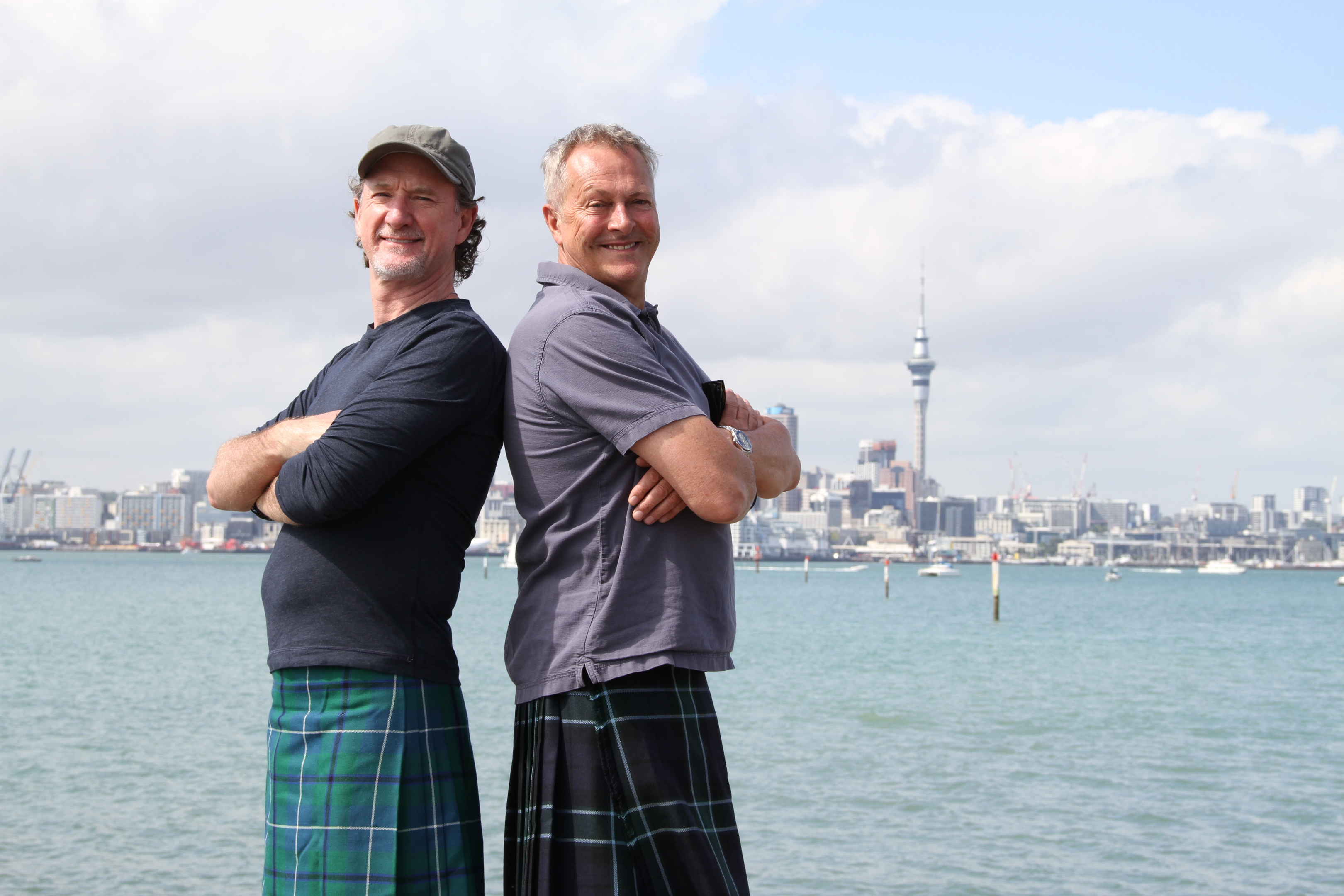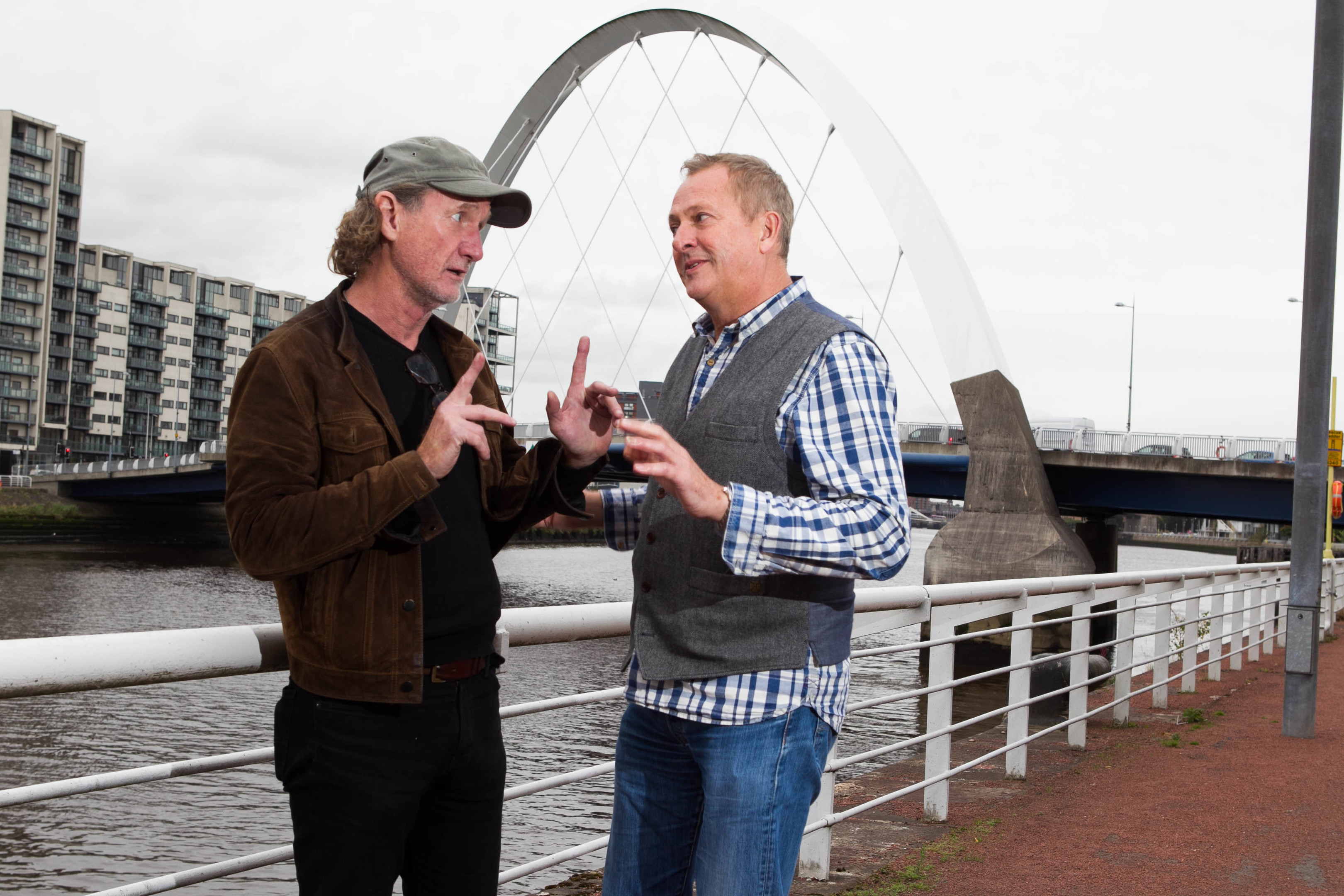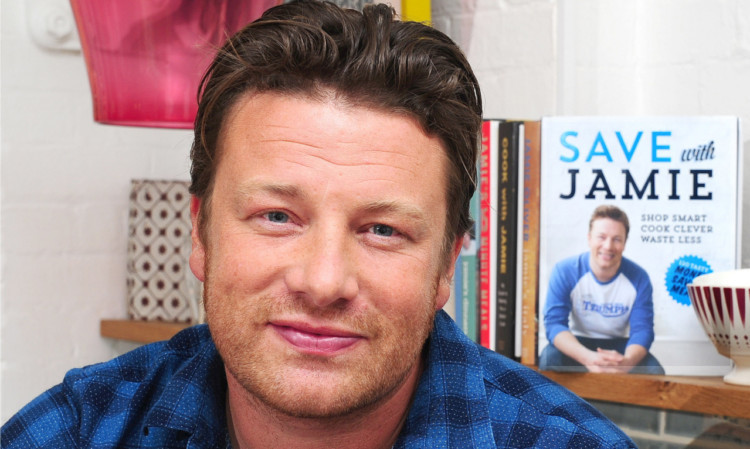
HE is about to be seen in another series of the hit show that has made him and Paul Rankin known all over the world.
But ahead of Paul and Nick’s Big Food Trip New Zealand hitting our screens, Nick Nairn has spoken of how the success contrasts with his biggest business failure.
Even as he was filming the show, he was agonising over having to close his Aberdeen restaurant. Nick’s Pizza Bar, which he launched in December 2016, closed in July, a month after the shutters went up at the longer-established associated cook school.
“We had been haemorrhaging money,” said Nick, 59. “Enough was enough and we had to close it.
“It was an incredibly tough decision, the toughest I’ve had to make in my career. I’ve never had anything I’ve had to pull out of before. When we went up there the streets were paved with gold and oil was $110 a barrel.
“It was on my mind when I was in New Zealand and I did have sleepless nights. It didn’t take away from the experience, but it was always there.
“It had been a long time and you just cannot keep losing money. All the advice I got was that we should have pulled out years ago. It was only my stubbornness to make it work.
“I didn’t want to put my hands up and say enough is enough. But it’s business and not every business works.”
The current economic climate has seen other well-known restaurateurs face tough times, with Jamie Oliver closing a number of his self-titled eateries.
Latest figures revealed that the number of restaurants in Scotland which have closed over the past decade has almost quadrupled.
“It’s an extraordinarily tough time for the high street,” said Nick. “Whatever way you look at Brexit, it’s a distraction.
“We’ve had a referendum and we’re potentially going to have another one. It makes people jittery and wondering what happens next and they are less likely to spend.
“We have food inflation because of the exchange rate and we’re having to absorb that. And while I think the minimum wage is great, it means bigger payroll costs.
“But the biggest problem is recruitment. We don’t have enough good people coming in – front of house, kitchen, management – and when they do come on we can’t hold on to them. It’s an epidemic.”
Nick also found himself in the headlines when he was assaulted in Aberdeen just before Christmas, making it an exceptional 12 months.
“It’s been a bit of an extraordinary period,” he admits. “The assault was just an isolated incident. A lot of people have tried to connect things to it but it was just being in the wrong place at the wrong time.”
While Nick has had business woes, things couldn’t be going better with his TV work. The chefs’ Canadian Food Trip series finished on Friday night and STV are so happy with it they have scheduled the eight-part New Zealand show to start on Friday, October 12.
It may be the other side of the world, but the duo – Paul was born in Scotland but brought up in County Down – will once again be exploring their shared Ulster-Scots heritage globally.
And Paul, the first chef from Northern Ireland to be awarded a Michelin star, says that heritage has been integral.
“During the Good Friday Agreement it was discovered that there was money there for the Irish language,” said Paul, 58. “And accordingly there was also money for the Ulster-Scots language.
“It’s that funding that helped get our wee show made.”
After a couple of series on these shores, their culinary odysseys have been increasingly far flung, with this sixth series the furthest-travelled yet.
“Our hearts have swelled with pride at the achievements the Scots and Irish have made across the world,” said Paul. “One in 10 Americans have strong Scots-Irish DNA in them and one third of all US presidents are of Ulster-Scots descent.”
The New Zealand trip uncovered much more recent connections than American and Canadian immigration. And they found Scots influences everywhere. “Dunedin on the South Island is astonishingly Scottish,” said Nick. “About 40% of people there have Scottish roots.”
The previous series, sold in various countries now, ensure they are recognised wherever they go. And while filming involves a long time away from home, both say that working with their best mate means that’s not a hardship.
“I first met Nick when he was trying to chat up my ex-wife and told him to butt out,” laughed Paul.
Nick added: “We are extraordinarily similar. We opened our restaurants at the same time, got our Michelin stars at the same time and did our first TV at the same time.
“We did pretty much every Ready Steady Cook programme together and we had some legendary nights out in London. When I’m down he’s picked me up and the other way round. We have each other’s back and it’s a proper friendship.”
The duo already have plans for a new series, this time in Australia, if the New Zealand episodes go down as well as usual.
Paul and Nick’s Big Food Trip New Zealand STV Friday, October 12 at 8pm
Restaurants close as diners lose appetite for eating out
Jamie Oliver is the highest profile chef to be hit by the downturn in eating out.
Oliver, worth £150 million, said his restaurant business ran out of cash in September last year when he got a call saying he had just two hours to put money in to avert collapse.
He put in £12.7m, supplemented by bank loans and subsidies but he has since shut 12 of the chain’s 37 restaurants and made about 600 staff redundant in an attempt to save the rest of the operation.
Oliver said: “We had simply run out of cash.
“And we hadn’t expected it. That is just not normal, in any business. You have quarterly meetings. You do board meetings. People supposed to manage that stuff should manage that stuff.”
Across the UK, the number of restaurants has fallen for the first time in eight years.
Insolvency Service figures for Scotland showed 76 failures in the first six months of this year, three more than for the whole of 2017.
Restaurants accounted for 8.6% of all corporate failures, compared to just 3% a decade previously.
With 234 Scottish restaurants going bust in the past three years, it equated to one eatery entering insolvency every five days.
As many simply close and don’t bother going through an insolvency process, it’s thought the numbers in trouble will be much greater.
Award-winning chef Mark Greenaway recently announced the closure of his fine dining Edinburgh restaurant while saying he would be opening another venture without “tablecloths or waiters in waistcoats and ties”.
Some independent operators in the capital have blamed the expansion of chain restaurants. David Ramsden, of the Dogs restaurant in the city centre, was one of those hitting out, saying his business had been “decimated”.
It’s thought many restaurants are also struggling with margins as they are forced into taking discount vouchers to fill tables.

Enjoy the convenience of having The Sunday Post delivered as a digital ePaper straight to your smartphone, tablet or computer.
Subscribe for only £5.49 a month and enjoy all the benefits of the printed paper as a digital replica.
Subscribe
